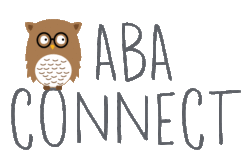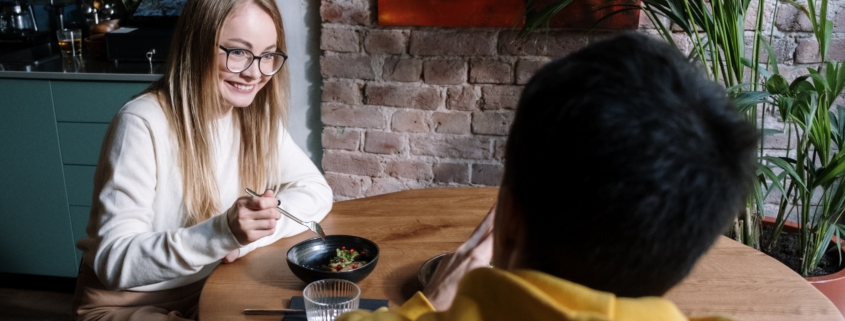Nurturing Special Needs Sibling Bonds: Keys for a Strong and Supportive Relationship
A Parent’s Perspective: Sibling Relationships
If you are a parent or caregiver of a child with autism, you understand the unique challenges and joys of raising a child with different abilities. One of the most worrisome aspects of parenting a child with autism may be how it affects their typically developing sibling(s). Nurturing this relationship is essential for fostering a strong and supportive family dynamic, but the path isn’t always straightforward.
ABA can help!
I have two boys almost four years apart. My neurotypical son is the oldest. My youngest has autism. As a parent, I want them to love each other and get along constantly. This is not our reality. (Nor is it for most families who don’t have the added component of autism.) But at moments, I glimpse their deep and abiding connection despite their differences.
My sons’ relationships with one another have gone through many highs and lows over the years. I’ve noticed things that bring them closer and things that push them apart. ABA has been a valuable tool in promoting understanding between them.
The importance of nurturing a strong and supportive relationship
Fostering a strong sibling bond while they’re young can become a connection that will last a lifetime. It takes a little bit of curiosity and intentionality as a parent. This blog post will explore tips and strategies for nurturing special needs sibling bonds, such as facilitating opportunities for connection at different levels of development, encouraging communication and empathy, and supporting the non-special needs sibling. ABA can reinforce each of these opportunities.
Finding common interests and activities
Finding opportunities for your kids to connect will evolve as they change and grow. The developmental gap may not be evident in their younger years, allowing for simple joys like reading stories together or playing pretend. As they transition out of the baby and toddler stages, creating opportunities for shared play may pose more challenges. Consulting your child’s BCBA is a valuable step.
At ABA Connect, therapists incorporate sibling goals into home-based therapy programs. For instance, if a child with autism initially shows little interest in play, a goal of tolerating play for just 30 seconds can be a starting point. Over time, you can work towards goals like sharing toys without challenging behaviors, taking turns, and completing a game. Encouraging parallel play is always a good option if finding common ground seems difficult.
Also, seeking shared interests and activities can foster deeper connections between siblings and sometimes even grow along with them. Consider each child’s strengths and interests when trying new activities. And, of course, ensure inclusivity for the child with autism, which may involve adjustments or accommodations to guarantee that everyone feels valued and included. Your child’s BCBA may have some helpful strategies to make the things you do together go more smoothly.
Communication strategies for special needs siblings
Fostering open family communication plays a pivotal role in nurturing sibling bonds. Create a secure and welcoming space where your children can freely ask questions about their sibling with autism, express their emotions, and share their unique experiences. An open environment is instrumental in enhancing their comprehension of their sibling’s condition and their challenges.
Acknowledging that your neurotypical child may grapple with jealousy, embarrassment, or confusion is important. While these emotions might be challenging to address, they are entirely normal and represent a crucial part of your child’s emotional development. As a parent, you can embrace this opportunity in a couple of ways.
First, offer empathy. Recognize the difficulty your child faces in expressing their concerns, assuring them that what they feel is perfectly normal and it’s alright not to be “okay” all the time. When appropriate, sharing some of your struggles in parenting a child with autism can be a valuable example of empathy and patience. Siblings often learn through observation, and your actions can set a positive tone for their interactions.
Second, educate your child about autism. Your child may seek age-appropriate information to understand their sibling’s condition better. If they express interest, take the opportunity to teach them about autism, explaining the importance of acceptance and inclusion.
Listening attentively to your children’s perspectives and validating their emotions is paramount. It fosters a sense of being heard and understood, which forms the bedrock for constructing a solid and supportive sibling bond.
Helping your child with autism develop understanding
It’s not only essential to cultivate empathy within your neurotypical child but also to collaborate with your ABA provider in instilling these skills in your child with autism. For instance, a BCBA developed a program at ABA Connect where the client used an Alternative and Augmentative Communication (AAC) device to answer questions about their sibling. This approach promoted a deeper understanding of their neurotypical sibling as a significant and valued part of their life.
My younger son, who also uses an AAC device, has several buttons he likes to use to get his brother’s attention. His favorite is, “I want to watch Star Wars with my brother.” He will push it and then smile. I wonder how much of it is an attempt to escape the task at hand as much as it is because he loves to spend time with his brother. It’s probably both! Regardless, they do share a mutual love for Star Wars.
Seeking ABA help and support
Every family has a different philosophy about how to live with autism. The therapists at ABA Connect take each family’s lead on how they want to talk about and relate to one another’s differences. Some families like to involve siblings in therapy sessions, especially if the sibling wants to be the helper. Involving a sibling in ABA can allow them to actively participate in their sibling’s progress and better understand their unique needs.
One of the families who did home-based ABA therapy at ABA Connect worked with a sibling with an innate ability to help the client generalize skills. The oldest child in the family, the client, had high support needs. His younger brother worked with him to better tolerate different situations through a specialized ABA program, and their interactions improved over time. So much so that when the next sibling came along, he showed him how to play with toys and modeled everything he learned in ABA.
My oldest son used to participate in therapy similarly. He is now a teenager. His involvement in ABA therapy looks much different than when he was younger. Over the years, he built a relationship with our BCBA. Now, as he encounters other behavioral challenges and communication frustrations with his brother, he can discuss strategies with her on how to extinguish negative behaviors and promote positive ones. What’s extra special about this for me is that he has someone else who deeply understands.
ABA can provide valuable guidance and support for parents and caregivers and help siblings develop the skills and strategies they need to interact with their family members with autism and eventually build a solid and supportive relationship.
Additional resources for special needs siblings and their families
Many websites, books, support groups, and camps are available for families of children with special needs and their siblings. These resources can provide valuable support and guidance; here are just a few:
- Sibling Support Project
- Autism Speaks: A Sibling Guide to Autism
- The Other Kid: A Draw it Out Workbook for Kids Dealing with a Special Needs Sibling by Lorraine Donlon
- Hi, My Name is Jack by Christina Beall
By taking advantage of these and other resources, you can help support your family and nurture a strong and supportive sibling bond.
Building a strong and supportive sibling bond
Building a solid sibling bond takes effort and intentionality, but the rewards are worth it. By working together as a family and supporting each other’s strengths and challenges, you can create a loving and supportive home that celebrates each child’s unique qualities.
Remember to celebrate family wins together! Big or small, acknowledging everyone’s victories is essential.
If you have any questions or comments about ABA therapy, please leave them below. The team at ABA Connect is happy to help answer your questions.
If you found this post helpful, please like, share, and follow for more content on autism or ABA therapy.
If you are interested in a positive, play-based approach to ABA, contact ABA Connect.
Please note that while I am a consultant writing on behalf of ABA Connect, my child is not a current client. The views and experiences shared in this blog post are entirely from a parent’s perspective. I aim is to provide informative content and insights based on my personal experiences as well as interviews conducted with the staff at ABA Connect.




Leave a Reply
Want to join the discussion?Feel free to contribute!